I’m not sure what’s worse: working a job you hate or having to search for a new job. The constant submitting of resumes, applications and cover letters then trying to coordinate interview after interview feels like a full-time job by itself. Despite all of the resources available online, hunting for a job can be exhausting. Sifting through pages of job descriptions that seem promising but have already received 113 applicants and just praying that the next interview goes well is an experience many of us know but try as hard as we can not to repeat.
So if you’re currently on the job hunt or just want to acquire some tips to make your next job search easier, we’ve gathered some of the best advice from the Life Pro Tips subreddit to help lighten your job searching load. From interview pointers to red flags to look out for in job postings, these tips can help make your next career transition as smooth as possible. Below you’ll also find interviews with founder and CEO of JobJenny, Jenny Foss, and host of the “Find Your Dream Job” podcast, Mac Prichard. Be sure to upvote the responses you find most helpful, and then if you’re interested in even more job hunting tips, check out this Bored Panda piece next.
Listen beautiful relax classics on our Youtube channel.
#1
When a job interviewer asks, “What’s your biggest weakness?”, interpret the question in practical terms rather than in terms of personality faults.
“Sometimes I let people take advantage of me”, or “I take criticism personally” are bad answers. “I’m too honest” or “I work too hard”, even if they believe you, make you sound like you’ll be irritating to be around or you’ll burn out.
Instead, say something like, “My biggest weakness with regards to this job is, I have no experience with [company’s database platform]” or “I don’t have much knowledge about [single specific aspect of job] yet, so it would take me some time to learn.”
These are real weaknesses that are relevant to the job, but they’re also fixable things that you’ll correct soon after being hired. Personality flaws are not (and they’re also none of the interviewer’s business).
Image credits: Iron_Rod_Stewart
We reached out to founder and CEO of the internationally recognized career website JobJenny, Jenny Foss, to get some job searching tips from an expert. Jenny is a job search strategist, long-time recruiter, and author of the soon-to-launch book, Do This, Not That: Career. First, we asked why Jenny thinks job hunting is so hard. “Most of us don’t learn this when we’re going to school. We go to school (particularly college) to study a vocation but, unless we get lucky or proactively pursue support on how to make the most out of job search, we tend to fumble our way through it,” she explained.
“Complicating this further is the dearth of information and advice available to us — and the fact that there is literally no barrier to entry to becoming a ‘career expert.’ Given this, you’ll give a wide range of advice, some of which will directly conflict with other advice that you’re uncovering.”
“Last, job hunting is hard because, even under the best of circumstances, people tend to be overwhelmed, confused or quite stressed when they are job searching. It’s not a fun experience for the vast majority of professionals.”
#2
Don’t be fooled by the “working for a dream company” ideology. You’ll be much better off with an amazing boss at an average company who champions your work, allows you to develop mastery in your field, and gives you autonomy.
Image credits: WrongKielbasa
Next, we asked Jenny for her best job searching tips. “Don’t be afraid to reach out to people, even strangers. Whether that’s asking someone for an informational interview, reaching out to a friend of a friend, or talking with a professor, former colleague, or recruiter. People tend to be so worried about being a bother that they take few proactive steps to further their connections when job seeking and this is a huge mistake,” Jenny says.
“Certainly, you want to approach with genuine curiosity, and be thoughtful of what you’re asking for and how much time you’d like, but never be afraid to ask curious questions to learn more about a company, a job or another person.”
#3
Your company didn’t know you existed before you applied and won’t notice you when you’re gone. Take care of yourself.
Image credits: CalJackBuddy
We also asked Jenny if there are any red flags to look out for when job hunting. “Oh, gosh, yes. Definitely work to understand why the position is open,” she says. “Also, try and get a pulse on the culture of the company and the well-being of the people. This could be as simple as reviewing the job description — If the demands seem to (far) outweigh the compensation for the job, that’s a red flag. If the interviewers or hiring managers seem super scattered or unorganized, that’s another red flag. If they try to hire you on the spot, that could be another red flag…. trust your gut as you work to find a role that aligns with YOUR career aspirations and compensation expectations.”
If you’d like to hear more from Jenny to help you in your career search, be sure to check out JobJenny right here.
#4
Rememeber, at a job interview, YOU are also interviewing the company. Ask more questions, don’t settle so quickly because it might not be for you after all
Image credits: LordNadez
Listen beautiful relax classics on our Youtube channel.
We also got in touch with Mac Prichard, creator of the career searching site Mac’s List and host of the podcast “Find Your Dream Job”, to hear why he thinks job searching is so tough. “Looking for a job is like planning a trip. If you’re unclear about your destination, your journey will be a lot harder and longer than it has to be,” Mac explained. “So before you send out your first application, know the job you want, be clear about the salary and benefits you need, and identify the companies where you want to work. When you do this, your job search gets easier and faster and you will have a more rewarding career.”
Next, we asked Mac to share some of his best job searching tips. “Be clear about the job you want, create a target list of employers, and network inside the companies where you want to work. Hiring managers place great importance on referrals. Make this principle work for you by asking people in your network for introductions at the organizations you’ve targeted.”
#5
From here on out, make “What was your company’s COVID response?” a standard interview question.
I work in software. My whole company has been working from home for the past two months, and performing at 100%. Now management is forcing us all to come back into the office on June 1st, for no discernible reason.
I don’t want to work for a company that cares so little about the health of employees and their families, ever again. I’ll be looking for something new as soon as it’s practical, and I will definitely be asking prospective employers this.
Image credits: PhasmaFelis
We also asked Mac if he knows of any red flags to look out for when job hunting. “Pay attention to your experience as a candidate. How employers treat applicants speaks volumes about a company’s culture and what it’s like to work there,” he said.
Lastly, Mac wanted to add, “To get the best job and enjoy the most rewarding career, you need to spend time up front in a job search getting clear about what you want and what you offer. When you do this work, you can be much more selective about where you apply and you will have a shorter and easier job search.”
For more wise words from Mac, be sure to check out his podcast right here.
#6
Job descriptions are usually written to sound more complicated and high profile than the jobs really are. Don’t let the way it is written intimidate or deter you from applying to a job you think you can do.
Image credits: RoseyPosey30
Unless it has been years since the last time you had to search for a new job, you probably remember the experience all too well. Whether you had the stress of potentially not being able to pay rent looming over your head or you just desperately wanted out of a position you could not stand, job searching is usually more stressful than exciting. Sure, if you are moving to a new city or just looking for something new, finding a different job can be the start of a new adventure. But for the vast majority of us, updating our resumes and sending countless emails into the void feels like a nightmare.
So to expedite the process, we’ve compiled this list for you. Every position is different, but I’m sure you will find something useful here that applies to your field. And to find out even more about job searching, we’ve consulted Zety’s 2022 HR Statistics Report. When it comes to what job seekers prioritize, 96% of them find it important to work for a company that embraces transparency. So if that’s important to you, know that you’re not alone. Finding a company that is up front with employees and consumers should not be a problem.
#7
Employers put “entry level” in job titles to trick applicants into accepting less pay. If the “entry level” job requires you to have significant experience, demand more than starting pay.
Image credits: MuffMagician
Now you might have a few different ways of searching for open positions, but most people tend to use social media. In fact, 79% of job seekers say they’ll look for open positions on social media, with 86% of younger workers saying the same. LinkedIn and Indeed are among the most popular sites with job postings, but nowadays there are plenty of other location or field specific options as well. The competition is fierce though. For corporate jobs, the average posting receives 250 resumes. Only about 6 people will actually be offered an interview though, so you better make sure your CV stands out.
In fact, only 1 out of every 6 applicants for any position is called in for an interview. While this may sound disheartening, at least your time is not likely to be wasted by going on countless interviews. Once you’ve been called in to meet the hiring managers, you are already so much closer to the position than most applicants. With all of the resumes that recruiters receive, they are likely to take less than 10 seconds to scan your information. If it’s not abundantly clear that you are right for the job, they’re moving on. This is why it’s always important to tailor your CV to each place you apply. By making the recruiter’s job easier and putting the most relevant experience front and center, you’re less likely to be overlooked.
#8
Loyalty to your company only rewards the company. Hopping companies is the best way to increase your salary, don’t sit there hoping for a raise. Apply to other jobs, get a better offer and use it to leverage a raise or take the offer.
You’d be surprised how many people nearly double their salaries just by applying for jobs.
Image credits: seanmashitoshi
Now, you might be wondering what everyone else who is applying for similar jobs is looking for. According to Zety, the top 5 pieces of information job seekers want to find when they are researching positions are: details on compensation packages, details on benefits packages, basic company information, details on what makes the company a great place to work, and the company’s mission statement, visions and values. In fact, when it is difficult to find information about a company online, 37% of job seekers said they will skip applying there altogether. The theme of a desire for transparency continues. When a company is too elusive online, they are only hurting themselves. Potentially perfect job candidates are deterred by not being able to see if their values align with a business.
#9
No matter how much your workplace pushes “team building” and “family culture” – remember, they’re not your friends and it’s still a workplace.
Unfortunately, I learned this the hard way. I work for a small business who put huge emphasis on everyone being friends and building a strong team, but it just means it hurts more when someone inevitably stabs you in the back. I’m not saying go around and be a dick to people for no reason, but it’s better to build relationships outside of work or in places where there aren’t any politics or power imbalances.
Image credits: reddit
Many job seekers want to understand the values of a company because it can be hard to set aside personal views at work. Sure, employees need to be professional, but they should also be able to stand by their employers and be proud to work for them. In fact, 50% of job seekers said they would turn down an offer from a company with a poor reputation, even if it meant they would earn more money there. On the other hand, 92% of employees said they would be willing to jump ship and leave their current jobs if they had an opportunity to work for a company with an excellent reputation. While many companies are scared to show any personal views or political affiliations for fear of alienating customers, sometimes that is exactly what they need to do to gain a solid reputation.
#10
Do not fall for jobs asking for ‘Rockstars’ that’s code for underpaid, overworked and unappreciated.
#11
Don’t be afraid to ask for the salary you want/deserve.
I just finished the loooooong process of being interviewed for a new position at a new place of work. In the final meeting with the hiring manager, I was told the range they were looking at for the offer, and the upper-end was what I was making at my previous job (which I would be leaving to take the new role).
I decided to be transparent and tell the hiring manager that. I then said I would feel more comfortable with 7k more. Inside I was SO nervous that they’d pull the rug from under my feet, say I was being greedy (in more professional terms), and wave goodbye. Instead, they said it would be a stretch, but they’d see what they could do.
Came back the next day with the offer I was hoping for! To top it off, they said they appreciated my transparency which is why they went to bat for me.
Never be afraid to ask if you feel it’s fair and you’re deserving.
Image credits: missthinks
#12
For people starting a new job. If a task typically takes someone ~3.5 hours and you can get it done in 1 hour, don’t turn your task in right away – wait about an hour. If your manager(s) discover how productive you really are, they will quickly overwork you without proper compensation.
Image credits: VT_Forever
When it comes to the hiring process, there is a lot at stake for companies as well as potential employees. Candidates are in need of a job, but hiring managers also want to ensure that they choose the perfect person to fill the role and stay with the company for as long as possible. On average, companies spend $4,129 per employee that they hire, so it is in their best interest to keep turnover rates as low as possible. Yet somehow, 61% of employees report that “the realities of their new job differ from expectations set during the interview process”. Perhaps it is because interviewers are desperate to fill a role or they don’t have as thorough of an understanding of every position as they should, but understandably, this can lead to frustration for new hires.
#13
Keep a separate master resume with ALL previous work experience. When sending out a resume for application, duplicate the file and remove anything that may be irrelevant to the position. You never know when some past experience might become relevant again, and you don’t want to forget about it.
I guess I can shut down some of the disagreement by saying that every field does things a little bit differently, but this is what’s worked for me as a soon-to-be college grad, with little truly significant work experience, and wanting to go into education. Most American employers/career help centers I’ve met with suggest keeping it to about a page because employers won’t go over every resume with a fine-toothed comb right away. Anything you find interesting but maybe less important could be brought up in an interview as an aside, perhaps.
A few people have mentioned LaTeX. I use LaTeX often in my math coursework, but I’m not comfortable enough with it outside of mathematical usage for a resume. Pages (on Mac) has been sufficient for me.
As far as LinkedIn go, it’s a less-detailed version of the master document I keep, as far as work experience goes, but I go way more in depth into relevant coursework and proficiencies on LinkedIn than I do on paper.
TL;DR- I’ve never had two people or websites give the same advice about resumes. Everyone’s going to want it different. Generally in the US, the physical resume could afford to be shorter because it leaves room for conversation if called for an interview.
Image credits: rlc327
#14
For those of you who are interviewing on Zoom, these tips helped me get three job offers.
Raise your camera to eye level or slightly higher. I prop my laptop up on a couple books. This keeps your gaze from pointing down. Eye contact is important, even on a video conference.
Create a brief doc outlining key points you want them to know about you (including a “tell me about yourself” intro) and several questions you have for them.
Open the doc on your computer, and launch Zoom in a small window at the top center of your screen above this doc. Doing this keeps your eyes focused on the top of the screen while they are talking, making you appear more engaged than if you were looking, say, at the bottom left corner at the person talking. And having your notes just below just in case helps to calm nerves and keeps your thoughts clear.
#15
Any time you successfully solve a problem, handle a difficult situation, etc., write it down and use it in future job interviews.
This is for anyone who may job-hop to increase their salary. Or for those who are generally afraid of “Tell me about a time when you…”-style questions in job interviews.
We all have those days where something out of the ordinary happens and you have to deal with it somehow some way. Instead of just doing it and talking about it later (or worse, forgetting it the next day), write down the entire scenario and how you successfully handled it on a Word document so you don’t forget it.
This way you’ll be much more prepared and it’ll give you a bit of a leg up against other job seekers.
Image credits: [deleted]
Despite the collective disdain for the job searching process, most people end up experiencing it many times during their lives. In fact, the average number of jobs held throughout a person’s life is 12.5 for men and 12.1 for women. It makes sense, as most people go through various transitions such as acquiring education, changing their interests or moving to a different city, but plenty of people voluntarily enter the job market for other reasons as well. Apparently, the top reason why workers quit their jobs is because they felt underappreciated. Getting a better offer is another common reason to transition to a new job as well, as 81% of employees say they would be open to leaving their current jobs if an attractive offer presented itself.
#16
DO NOT badmouth your current company during an interview, even if the interviewer asks why you’re looking to leave.
It seems like common sense, but I keep seeing it happen again and again. My partner and I are both hiring for highly sought after jobs, and we keep running into candidates who use the interview to badmouth their current job, talk about how dumb they think their current manager is, or how the work is beneath them. DO NOT DO IT.
Here are some general vague responses you can use if you get asked that question. Really, any responses is acceptable, so long as you’re professional:
• My company is great, but I think I’m ready for the next step in my career.
• As things have changed at my company, so has the role, and I think I need something that will be a better fit.
• I think I do very good work in my current role, and I think this job would compensate better for my efforts.
• I’m not looking to leave my current company, but when I heard about this role coming open, I knew I had to take the opportunity.
#17
If you’re in college/trying to build a career, land a part time job where rich people hang out.
A lot of career / portfolio building comes in forms of connections and who you know. In my specific example, I worked a part time job at serving at a country club that was a bit from my university (I also have friends who work in upper class retail / restaurants and it has the same exact effect).
You talk to so many well connected people and in turn make so many connections, and in ways that you wouldn’t even expect. You get business owners, doctors, etc. and if they aren’t doing what you want to do, they almost 100% know someone who does and they will hook you up. I scored a pretty solid med internship because one of my regulars had a friend in the field I wanted to go into. I got my friend a pretty decent house sitting job because another regular was going out of town and needed one.
This stuff is like LinkedIn in real life, and they all come to you. Every time you clock in it’s a networking event and you’re getting paid for it. Plus if you work for tips, they’re usually pretty damn good.
Though there are cons to this- you do have to service rich people and occasionally they can be just unholy and very entitled (most of my regulars are absolute dears). It’s also a lot of fake laughing, but I feel like that’s most customer-facing roles anyways. You do have to put in some time getting to know your regular patrons. It’s also still a job, so you’ll have to work. But it very much is a “you get what you put in” type of thing, without the legwork of actively seeking out the people.
EDIT: I think I should clarify a few things- I am not white, nor am I rich already. I do well at my job and get great marks in college because I want to go to med school. Anyone who knows what it’s like to be in a competitive field knows that it’s important and helps to at the very least know people and get your foot in the door. Does it suck that it’s the way it is? Absolutely. But I’ll be doing everything I can to succeed in a system that wants me to lose.
Further, these people are country club rich, not Kardashian rich. They are/were workers too and usually have built up their wealth just as we all have to. People who were born into wealth are people who aren’t worth talking to anyways about careers, because they don’t work, thus aren’t really meant to be included in this post. Regardless though if they’re rich or not, it’s always good to be kind to everyone.
Image credits: lexaprogoalie
#18
Never tell the recruiter how much money you make and never be the first to give a number
A lot of recruiters will ask what salary you are interested in, partly to see if you are within their budget but also this is a huge opportunity for you to sell yourself short, especially if you don’t fully understand the scope of the role yet.
Instead, say something like “I think I would need to hear a bit more about the scope of this role and expectations before discussing compensation for it. Can we revisit this discussion after I have had a chance to talk with the team and determine whether I am a good fit?” – they might immediately ask you what else you want to know about the role here so be prepared.
Recruiters will frequently ask how much you currently make as well, again, partly to see if you fall within their range and again a huge opportunity for them to take advantage of you. I would recommend never answering this. Instead say something like:
“I would prefer not to disclose that at this point in the process. I would prefer to have a more comprehensive salary based on my skills, what I can offer to the team, and company benefits. Is there a certain budget that you had in mind?”
This does a few different things. For one, the recruiter doesn’t know what you make now – so if your current compensation is below their range, they cant just offer you the minimum or even attempt to match your current salary. You’re also asking their budget range to get a better idea of what this company is comfortable offering as well as their benefit package. Most companies will let you know what their benefits early on in the hiring process.
TL;DR Don’t tell the recruiter your salary! It might be way below what they were going to offer you in the first place and will immediately minimize your negotiation attempts!
Image credits: FuckThatIsCold
One reason it can take so long to find a new job is because of how competitive the market is. Currently, in the United States, the unemployment rate is at 6.7%, meaning 10.7 million people are searching for new jobs. Over one third of those individuals fall in the “long-term unemployed category” as well, meaning they have been without work for at least 6 months. It can be very easy to find yourself in that category though, as it takes the average person 24 weeks, or about 5.5 months, to find a new position. Even if you have a lead, companies can move slowly. The average amount of time it took to hire a new employee in 2016 was 39 days, as reviewing resumes, scheduling interviews and going through intense vetting processes often takes time.
#19
When applying for a job online, copy and paste your answers to their application questions into a word document so you can refer back before attending a later stage interview
#20
Beware the “Intern Trap”. Don’t take a job as a X Intern at a company that doesn’t have anyone who can do X.
Interning should be a process of learning a craft while you help to contribute to the overall institutional goals.
If a company is advertising for an intern position, but doesn’t have anyone who does that job, then they are probably just trying to pay someone less for a job that they want someone to be able to do. Traditionally, these are jobs that young people are adept at, but older people may not have the skills to perform.
For example, they probably need/want a Social Media Manager, not a Social Media Intern, but they want to pay less, hence the title. If you interview for a position like this, ask who at the company you will be learning from. If they don’t have someone senior in the role, they may be willing to offer a mentor in other valuable skills – a senior marketing manager, for example.
Consider negotiating a title that reflects what you will be learning, not just what you will be contributing. This will help you develop your resume and, well, hopefully learn new skills. Also consider negotiating a title change and salary adjustment to reflect that title. “It seems that you don’t have anyone at the company in a position to mentor a Social Media Intern and that what you really need is a Social Media Manager. I’m happy to take that role, at the junior level, and prove my worth to the company.”
Really take a look at the learning on offer and what it’s worth to you – if they’re paying you $20k less a year, then your mentorship better be up to that value. You can save yourself a lot of wasted time and money by avoiding this “Intern Trap”.
EDIT: To be clear, some internships are genuine where you trade your work for real on the job learning (and a small paycheque). These should have someone on staff who is responsible to the intern – an actual mentor – or there should be a clear trade of skills/experience for your work and time. These are not the “Intern Traps” I intended to warn about. Nor am I talking about internships or practicums related to an educational course of study.
I’m talking to job seekers looking for a job who might be undervaluing their skills, potentially negotiating with a company that is trying to take advantage of the applicant.
In Canada, where I’m from, unpaid internships are (now) illegal, though were prevalent early in my career. These privilege people who have enough resources and support to be able to give their time and labour away without financial compensation and disadvantage people who can’t afford to work for free because they have bills to pay.
EDIT 2: A lot of people are reading this post as anti-internship. It is not intended to be! I am very pro-internship. This is a tip to ask in the interview to determine if what is on offer is, indeed, an internship or if it is a lowball play for your skills and labour. Just know what you are getting into by asking about the mentorship, training, and skills that they plan for you to learn. If they don’t have a plan, they might be exploitative. If you had a great internship experience, great! Lucky you! And thanks for sharing these experiences. It’s great to know some people have made the best of their situations, or, indeed had a good experience with a company that does internships right.
#21
When interviewing for a job, YES, you always have another offer in the works.
When the interviewer asks “have you had any recent interviews or offers?” the answer is always a polite, measured version of ‘yes’.
‘Well, I did just have my second round interview with (their direct competitor), but no formal offer at present. I know the holidays slow things down a bit.’
If you say you have no other offers, there is no impetus to hire you, bump you up a pay grade, treat you like a human, etc. Besides which, everyone has competition… except f**king North Korea.
Ideally, we would all love our jobs and be jumping out of bed in the morning excited to start our day. And while that is not the reality for most people, it is important to try to find a job that you do enjoy, at least a little bit, because you will be spending countless hours there. Well, maybe not countless, but approximately 1,786 hours there each year, or 38.7 hours each week. And on average, you will work the same job for about 4.1 years. So while it might be tempting to apply for anything and everything when you’re unemployed, remember that a job that sounds miserable when you apply is likely to get much worse after sucking up almost all of your time.
#22
When applying for jobs (especially to large organizations), look through the job description and add any keywords they use to your resume as frequently as possible to get your application through HR.
I’ve learned this heuristically over the last couple of months. I’d love comments from anyone who works in HR hiring or similar fields that can either corroborate or refute this theory.
HR is the first line of defense for hiring at most large organizations, but HR people aren’t all that great at judging qualifications for specific jobs (e.g. A person with a Master’s in HR doesn’t know what makes for a good nuclear safety inspector). This leads them to filter out resumes using keywords and jargon as an indicator of abilities. Paid resume development tools have figured this out. They essentially populate your resume with the keywords that they’ve found effective at getting interviews, but you can do this yourself if you know your industry well and research the job.
#23
When writing your résumé, use the STAR method to describe what you did in previous positions: Situation, Task, Action, Result.”
“Let’s say you tutored some kids while in high school. Maybe your descriptive points look something like this:
• Tutored several Grade 10 students in math
• Explained mathematical concepts and assisted in test preparation
The main question you want to ask yourself after each point is, ‘So what?’ Okay, you taught some kids math — how are those skills applicable for the position you’re applying for?
So using STAR, let’s break it down:
Situation: These kids need help learning math.
Task: Teach them math.
Action: Okay, so how are you teaching them math? By explaining mathematical concepts and assisting in test preparation.
Result: The goal is to improve their academic performance and understanding of the subject. When applicable, use numbers. A 25% improvement is more helpful than ‘improvement’ with no quantifier.
So now we have:
• Improved Grade 10 students’ academic performance by up to 25% by explaining mathematical concepts and assisting in test preparation
Tada! Isn’t that so much better?
#24
When you meet most of the qualifications for a job but they require prior experience, apply anyway.
Many employers will be willing to overlook the lack of prior experience if they like you.
When it comes to how satisfied Americans are with their current jobs, the results are mixed. 49% of employees in the US say they are very satisfied with their current positions, 30% report being somewhat satisfied, 9% say they’re dissatisfied and 6% say they are very dissatisfied. Those aren’t terrible numbers, but what is interesting is that most of those people are not actually engaged at work. Only 30% of Americans say they are engaged at work, compared to 70% of employees at the world’s best organizations. I guess not everyone has to be stimulated to be satisfied, but I can’t help but wonder if these people spend their days feeling bored. Maybe they end up reading Bored Panda on the clock…
#25
When you check a company’s Glassdoor, pay attention to the date of the reviews. If you notice a lot of good reviews in a short time frame, that means HR sent out a bulletin to internal employees to write artificially inflated reviews for the company.
#26
When interviewing for a job, when asked the salary question, turn that back around on the interviewer (nicely)!
This has worked for me on my last three jobs (one of them was a promotion) that I got. When the interviewer asks the question, ‘What salary are you looking for?’ instead of listing what you’re expecting, ask them instead.
I always start with explaining that I have been researching salaries in my field but wanted to know what they feel is a competitive salary for someone with my experience? (If this your first job interview or you’re going for an entry-level job that you don’t have experience in, you can always change the part about experience to ‘this position’).
Oftentimes, they will give you the number that they are expecting to pay for that position; and every time I ask a potential employer it has been at least $5K–$10K more then I was going to say.
This also helps you compare what they’re willing to pay vs. whether that salary is worth the job. AND you don’t run the risk of underselling yourself! (If they’re expecting to pay $60K and you say $40K, they’re not going to correct you and also might think that you are not as qualified or have a high opinion of your own self-worth).
#27
If you have to pay a company to work for them, it’s a scam. Walk away
If you’re currently on the job hunt, don’t get discouraged. Finding the perfect position can seem like an impossible task, but when it comes along, all of your efforts will have been worth it. We hope you learned something from this list that you’ll take with you throughout your future job hunting journeys, and I hope those journeys are full of more excitement than anxiety. Keep upvoting all of the pointers you find useful, and then let us know in the comments if you have any more job searching tips that could help a fellow unemployed panda out!
#28
Interview starts immediately.
Today, a candidate blew his interview in the first 5 minutes after he entered the building. He was dismissive to the receptionist. She greeted him and he barely made eye contact. She tried to engage him in conversation. Again, no eye contact, no interest in speaking with her. What the candidate did not realize was that the “receptionist” was actually the hiring manager.
She called him back to the conference room and explained how every single person on our team is valuable and worthy of respect. Due to his interaction with the “receptionist,” the hiring manager did not feel he was a good fit. Thank you for your time but the interview is over.
Be nice to everyone in the building.
Edited to add: it wasn’t just lack of eye contact. He was openly rude and treated her like she was beneath him. When he thought he was talking to the decision maker, personality totally changed. Suddenly he was friendly, open, relaxed. So I don’t think this was a case of social anxiety.
The position is a client facing position where being warm, approachable, outgoing is critical.
#29
If a company reaches out to you about a position and they attempt to give you a lower salary than you expected. Always ask if there are any other positions that will meet your salary requirements.
I was in a phone interview and was given a salary way below my range. I was speaking to the regional manager about why my desired salary was what it was and I expressed I would be willing to negotiate a higher position to meet my desired salary. He happily let me know he would discuss with his team about a solution to this problem not even an hour later they went ahead and offered me a higher position with 30% more pay.
To clarify I ended up with my desired salary plus 30%. Well it looks like I made it to the front page boyos thanks for the fake internet points I will cherish them forever!
#30
Keep your mouth shut, and don’t volunteer information.
I had a phone interview scheduled this morning, but accidentally slept through it. When I got up and saw that I missed it, I had the desperate urge to call and offer up excuses, in the hope that maybe, just maybe, they’d be understanding and give me another chance.
Instead, all I did was apologize and ask if we could reschedule. That’s it, one sentence, no additional information, no explanation or excuse as to why I missed the first interview.
They replied within 20 minutes, apologizing to ME, saying it was probably their fault, that they’d been having trouble with their computer system for days, and of course I could reschedule, was I available that afternoon?
Don’t ever volunteer information, kids. You never know what information the other party has, and you can always give information if asked for it later.
#31
When it comes time for the “do you have any questions for us?” part of a job interview, always ask why the position has opened up. This might help you get an idea of what kind of environment you’ll be going into.
Image credits: The-disgracist
#32
During a job interview, if offered a glass of water, accept it. That way when you get asked a difficult question you can take a sip for some extra seconds before answering.
Image credits: elzndr
#33
If they’re “always hiring,” just know that they also always firing.
And having people quit.
Image credits: taaiwa
#34
I’ve used the Occupational Outlook Handbook for decades to determine what it would take to get a job in a field and how much my work is worth. I am shocked how few people know it exists.
It gives the median income by region for many jobs. How much education you need (college, training, certs). How many jobs in the US there are, as well as projected growth. I’ve used it to negotiate for raises. It is seriously an amazing tool.
#35
If an employer says you have to treat an entry level job as more than just a job to be successful, that’s key for you’ll be overworked and underpaid.
Image credits: [deleted]
#36
This is a friendly reminder that employees currently have more power to negotiate for improved benefits and pay raises than at any point in the last 20+ years. Take advantage of it!!
Due to the shortage of employees, most employers are desperate for good help. That means you should be seeking pay raises, promotions, and increased benefits.
Unless you are completely satisfied with your job and your income, shop around. Chances are you will find someone desperate for help and willing to pay more than your current employer. If you like your job, shop around anyway, then politely ask your employer to match/beat those offers.
Look after yourself! This employment opportunity will not last forever!
Image credits: hoesindifareacodes
#37
Before ending a serious relationship, change 100% of all of your Passwords and remove your account info / auto login on ALL devices
I’m in the midst of hiring which is no small thing in this COVID world. I had one applicant who stood head and shoulders above the rest, she was exactly what my org was looking for.
Unfortunately, during the interview process she informed us via email she was no longer interested in the opportunity. So, we moved on to our 2nd pick candidate.
Fast Forward 2 weeks. I get a call from the applicant wondering if we had found someone and expressing interest in the job… I told her that she said she wasn’t interested and I showed her the email she sent us. Apparently, she didn’t send the email.
She had recently broken up with her boyfriend during her applying for this job and he “hacked” into all her accounts and fucked her life up. He deleted all of her social media and also sent us a false email saying she was no longer interested in the job.
Unfortunately, we hired someone so that opportunity is lost to her forever.
If you are in serious relationship then your partner has all of your passwords. They do. It is ridiculously easy to get someone’s passwords if you have access to their phone or computer. It is to your advantage to just assume someone you are serious with has all your passwords. BEfore you break up with them you need to change all, yes ALL, of your passwords.
It is amazing how evil and vindictive people can be when they are heartbroken. Even so-called “nice” people can have a moment of temporary insanity after a break up and torch your whole life if they have the chance.
Don’t give them that chance. Change your passwords
#38
During a job interview after they question you about your experience turn it around by asking them why you would want to work for them and what they have to offer for you. shifting an interview like that will show MASSIVE confidence and gets you into a much better position for discussing terms.
#39
Your cover letters purpose is to explain how your previous experience makes you ready for the job. “I can do x because I did y.” At the same time you explain you understand the job. Then the CV becomes just “proof” of that.
#40
Actually follow the pre-interview instructions. Just had an interview that required me to watch a video that ended with “And remember, the keyword is ‘pickle'”. The first question they asked me was “whats the keyword?”. Not everyone knows it, they said.
#41
If a company offers you a temporary position with the potential for a full-time position at the end of your agreed-upon time of temporary work, then ask them for the details of the full-time position. At that point you can tell whether or not there really is a full-time position available.
So I just spent the last two and a half months working for a company as seasonal labor. Customer service during the busy time of the year. Over the past couple months all 13 people who were hired as seasonal have been told that 3 full-time positions would be given out to those with the best performance.
Now that the the date for our temporary position is two days away they have sent emails to people informing them of whether or not they received a position. the email stated that there was only a limited number of full-time positions and unfortunately you were not the one chosen.. As if they thought we would not talk amongst ourselves we found out that all 13 people were told the same thing.
In other words there were no full-time positions.
One person in our group was the smart one. When they got hired on they asked to see details of pay, benefits and the likely schedule of the potential full-time position. The job recruiter could not provide this at all. She said that they dodged this question multiple times and she knew right then and there that there would be no full-time positions given to anyone. Because the position did not exist.
So from now on when I get hired on a temporary basis with an expectation that it can lead to a full-time position I will be asking for the details of that potential job and you should too.
#42
If an entry level job lists “Sales” as one of the responsibilities you can safely ignore anything else listed, that will be your job.
There are a plague of “companies” (fronts) out there that prey on college grads (particularly grads that don’t have an immediately applicable non STEM degree) desperate for a job or retail workers that desperately want out of the big box retail store scene. They will list these jobs as being “Event Coordinators” or “Marketing Associates”. It’s a lie, you can find these people at stores like Costco trying to sell some useless appliance that no one wants or going door to door trying to sell other appliances that no one wants.
And the recruiters that craft these resumes are VERY good at just bending the truth enough that what is on the job description isn’t technically a lie, but any reasonable person’s interpretation of the description is nothing like the reality of the position. That’s why the title is what it is: if they list sales, that is what you will be doing and nothing else.
An easy way to avoid this is to google the name of the company you are applying to. Either nothing will come up or they will be associated with other companies that are accused of doing the same thing.
TLDR: Be careful which companies you invest time into when you are applying and interviewing for a job.
Something that I should have clarified is that I don’t have a problem with sales jobs or people that work them. The point is that if the company feels the need to hide what the job is or lie about it on the description, something isn’t right.
#43
To all young teenagers looking for their first job, do not have your parents speak or apply for you. There’s a certain respect seeing a kid get a job for themselves.
We want to know that YOU want the job, not just your parents.
#44
LPT: Do not resign your current job until your next job’s background check is completed.
I just watched this scenario unfold: Employee gets a new job – hurrah! Employee resigns from current job sure that their background check is clean. Background check comes back and there is red flags. Red flags causes employer to revoke the job offer. Person has now resigned their current position (no takebackies) and hasn’t truly secured their current position.
Don’t do that. Just wait until your background check is completed before quitting.
#45
LPT: treat job interviews like you are interviewing them to see if they are worth your time. You will appear as a stronger candidate.
If they aren’t worth your time, don’t take the job. A lot of garbage companies out there.
#46
If a company says, I can’t pay you too much now, but if you stick around you’ll be greatly rewarded…. Leave. They’ll just dangle it like a carrot if you want a promotion.
#47
If you’re looking for a job, mention it to everybody that you come in contact with. You never know whose sister’s neighbor’s uncle is hiring.
I was trying to make a career change in my mid-20s and was having problems getting my foot in the door. I visited a loan officer at my credit union in the middle of my job hunt and mentioned it to her.
Her eyes lit up, and she said that the person that she had just had a meeting with worked in HR at the kind of company that I was looking to get into. She said that she could pass on my information if that was okay with me.
She did, and within 24 hours this person contacted me and I had an interview at his company, and I was hired the next week. If I had never mentioned it to this loan officer, I wouldn’t have gotten my foot in the door when I did.
#48
When you submit a resume to a potential employer, submit it as a PDF, not a Word doc
I actually judge the potential of the candidate by how they format their resume (typos? grammar? formatting? style?). If you format it as a PDF, I see your resume how you want me to see it. If you have it as a Word document, margins, fonts, etc may be lost or adjusted when I open it.
Ensure you show me your best self by converting it to a PDF.
And please… proof read it. Give it to a friend or family member to proof read it thoroughly. I will likely not recommend you for interviewing if you have poor grammar or obvious typos. I assume you are providing me a sample of your work when I look at your resume. It shows either that you don’t care or aren’t detail oriented when you have typos and I assume I can expect the same if I hire you.
Edit: There is a lot of conversation about Applicant Tracking Systems (ATS) and how they can vomit on PDFs. So, please be aware of this when submitting to systems that may utilize this.
Image credits: AGrainOfSalt435
#49
If you’re acting awkward and nervous at a job interview, it’s okay to verbally address your nervousness and indicate that it comes from your strong desire to get the job
#50
When deciding on a new job, don’t underestimate the importance of its distance from your house. Sometimes a bad job can be made worse by a long commute home and vice versa.
#51
When applying for jobs online, save a copy of the job responsibilities and requirements. This information is usually not available after they stop accepting applications and will be useful when preparing for the interviews.
#52
If a prospective employer won’t move forward unless you disclose your current pay, include your annual 401k match in that figure. Unlike a discretionary bonus, a 401k match is contractually obligated. It just happens to automatically go in your retirement savings.
Obviously, the employer is trying to see how much they can lowball you by asking your current salary. By giving this answer you’re not lying about your total compensation.
#53
Be careful not to let your guard down in conversations with figures of authority when the conversation is informal, friendly, and non-accusatory.
#54
Don’t get too attached to “dream” schools or “dream” jobs before you really get some first-hand experience. Most of these places/careers are considered “good” because of abstract prestige, not based on having healthy environments that promote growth and personal happiness.
There are a lot of prestigious jobs that are way more stressful than people think from the outside and are also not a good fit for most personality types, yet so many people want them. Also, prestigious institutions rarely are highly ranked based on how well they treat their employees and having a non-toxic work environment – in fact, it’s often the opposite.
#55
LPT: in a job interview when they ask if you want anything to drink, ask for a glass of water and nothing else!
They will most likely ask if you want tea or coffee, which you absolutely don’t and here is why: Tea or coffee leads down a rabbit hole of sub questions to what kind of tea or coffee, with or without milk, sugar or sweetener and possibly with people having to run down to the kitchen for your order. It creates an awkward pause at a time when you really just want to get on with the show and will ultimately end up with you getting a piping hot beverage which you have no chance of finishing during a 20 minute interview, where you do most of the talking. So what happens instead is that you burn your hands and mouth and leave most of the cup behind for them to clean up after you leave.
Water is a different story however! you *do* want to get a glass (or bottle) of water as it will generally be much faster for them to handle (it will most likely already be in the room) and it has a few practical uses during a job interview: water will refresh you, immediately clear up a dry mouth and give you a natural excuse to take a sip and win a few extra seconds to think about a difficult question.
#56
When applying for a job, save the job description. It’ll make adding it to your resume much easier.
#57
Don’t know what to do with that English degree and everybody is making fun of your major. Find a job in the legal field. Being able to read, write, and communicate effectively is the cornerstone of the legal profession.
#58
LPT: Stuck in a low wage retail job and want more? The print/sign industry is where to look.
Source: boredpanda.com




















